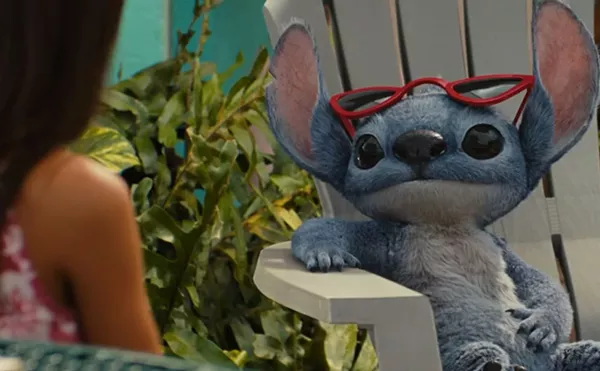
Audio By Carbonatix
[
{
"name": "GPT - Leaderboard - Inline - Content",
"component": "35519556",
"insertPoint": "5th",
"startingPoint": "3",
"requiredCountToDisplay": "3",
"maxInsertions": 100,
"adList": [
{
"adPreset": "LeaderboardInline"
}
]
}
]
Before music- and choreography-driven flicks like 1984’s Breakin’ and Beat Street, the term “headspin” was only associated with a scene in The Exorcist, and “battling” was what Luke Skywalker did in outer space. Breakin’ and Beat Street helped expose the world to an urban movement rooted in the love of hip hop, graffiti art and aggressive, “battle”-style competitions called break dancing. From these intriguing glimpses at life outside the academy of traditional artistic disciplines emerged rap-driven vehicles like 1985’s Krush Groove and, ultimately, Spike Lee’s Do the Right Thing in 1989. While Lee didn’t explicitly celebrate hip-hop culture, he used its symbolism and defiant themes — mainly in the form of perennial rap group icon Public Enemy’s song “Fight the Power” — to underscore his message.
Then 1991’s Boyz N the Hood and New Jack City did the unthinkable by casting rappers (Ice Cube and Ice T) in lead roles that called for them to act, rather than rap. The ’90s became the decade of the urban drama.
Twenty years after Breakin’ and Beat Street helped launch this historic era in cinema, writer/director Chris Stokes brings to theaters the wholly unoriginal concept of You Got Served. The successful manager of marginally talented boy bands Immature and B2K, Stokes apparently believes the new movie will launch acting careers for his teen idol protégés Omari Grandberry and Marques Houston. But a host of problems get in the way, including a plot so thin it’s anorexic.
Of the three primary characters, David (Grandberry), Elgin (Houston) and Liyah (Jennifer Freeman), only Liyah has a job or attends school. David and Elgin earn their keep running with a dance crew that “battles” for money, and through occasional drug trafficking. You Got Served follows the same basic formula used in countless other competition-oriented movies: hero gets challenged; hero accepts challenge; hero suffers tragedy or setback that makes challenge more challenging; hero miraculously rises to challenge anyway.
Following one such challenge, Elgin talks his grandmother, a widowed South Central Los Angeles resident who just happens to have $1,500 lying around, into lending it to him. Maybe she’s making up for a lifetime of missed birthdays and Christmas presents because Granny hands over the stash after about three minutes of conversation.
Not a single credible performance is given by the main players, apart from hefty actor Michael Taliferro as the sinister drug dealer Emerald. This imposing character is the film’s most memorable presence. But even Emerald is made to disappear by some contrived twist that suggests a single, valiant LAPD officer — who assisted an illegal gambling transaction earlier in the movie — has chased him away.
The only element that makes You Got Served interesting in any way is cinematography that captures high-energy, exciting dance sequences. Still, they’re the same old moves Ozone and Turbo performed in Breakin’ before most of this movie’s performers were even born. What passes for fresh in Hollywood is enough to make you do a headspin.
E-mail Eddie B. Allen Jr. at letters@metrotimes.com.






